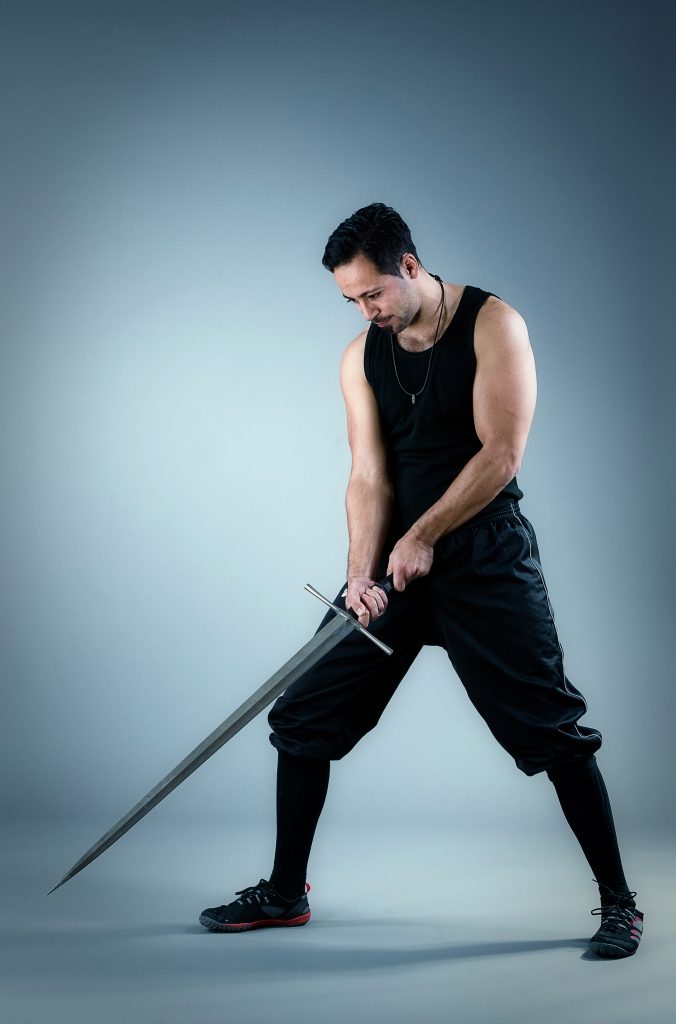Do you have a dream of becoming a great fencer? Or just a better fencer than you are today? You are not alone. So what makes some people excel at fencing? Here are a few tips on things and attitudes that are guaranteed to help you develop your fencing.
1. Have a learning mindset
In order to learn, you need to set yourself up to learn. It sounds simple, but it means that you must get your priorities straight and make sure that you have the right attitude. When you step into the fencing hall, be alert and pay attention. Don’t just walk in with an attitude of this being another training session. Instead, have high energy, prepare yourself to push yourself hard and be active: This is your opportunity to get better! And after training, don’t just let it go. Go through what you learned in your head and talk about fencing with your fencing friends.

2. Complement your training
Fencing is great exercise, but if you want to push the boundaries of what you can do, you should make sure that you complement it with exercises that will benefit your fencing. Beyond making you better at fencing, the fitter you are, the more intensely you can also train and the better you will perform.
We won’t go into exactly how you should complement your training here, because that’s a topic of its own and it’s also personal depending on where you are right now. But if you aren’t regularly weight training, training explosiveness and HIIT, you are probably nowhere near where you could be.
3. Train progressively
In weight training it’s basic knowledge that you need to push yourself further each training session in order for you to get stronger. It can be by adding weights, increasing intensity or doing more reps, and this is what is meant by training progressively. The same is true for fencing, but since it’s harder to measure it’s often overlooked. But if you train more, you will get better. If you train with more intensity, you will progress faster. If you train against harder or more opponents, you will adapt to more situations and learn new things. In other words, you get out what you put in and you can always push a little harder.
4. Be consistent over time
Training with intensity is great, but you also have to stick with it. Some aspects of your understanding and the progression your body is trying to make simply have to take time. Those who get really good, train consistently at a high level using proper methods for a long time. There are no short cuts here, no easy ways to get better faster. It’s a grind and you need to push through the tough periods with grit and perseverance. Even when the weather is bad and you didn’t have time to eat, when your body is telling you that it’s tired and your mind is making excuses, you must have the fortitude to press on through. If you find yourself in a place where you actually can’t make it to practise, then you still train. Do solo training, hit the gym or go out to run.
5. Get a coach and take private lessons
People who have a good coach will progress faster. Getting guidance and someone to push you is a really good way to becoming better faster. So, beyond regular practise, make sure you get private lessons on the side, where you and your coach are focusing on just you and not an entire class. A good coach will also help you when it comes to setting up a training plan, tell you what you can do in between training sessions and he or she will understand what you need to develop. If you don’t have this option, an online coach can also work.
6. Watch fencing. Analyse fencing.
Your brain is just as important as your body when it comes to fencing and your understanding of fencing is naturally essential for how you perform with a sword in hand. One of the best ways of increasing your understanding is to watch a lot of fencing and talk about it with other people. So take the time to watch old matches, sparring and training. And when you do, make sure to analyse what you see. What happened, what made one person succesful, what where the challenges and how could the fencers improve? And ultimately, how would you have approached these fencing situations?
7. Film yourself and do honest evaluations of your performance
A lot of people film their sparring and edit out the bits they are ashamed of before posting on social media. But it’s really the bits where you fail which are the most important. Also, don’t just film yourself sparring, film technique drills too. It will help you understand where you are and how you are performing.

8. Leave your ego at the door
Having a big ego is not good for your development. Big egos mean that you have to defend it and defending it means that you are hiding flaws and shortcomings. In other words, you are lying to yourself. Big egos are also one of the reasons people avoid situations where they risk losing status because they perform poorly. But progression can only happen when you push yourself out of your comfort zone and when you do that you always risk failing. The right attitude is to look at humbling experiences as your best opportunities to learn.




